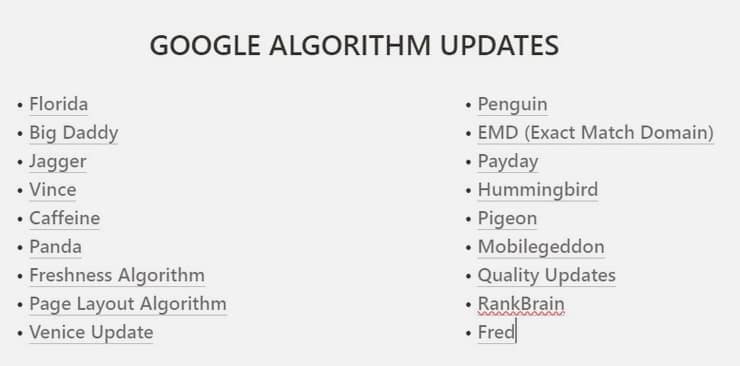Mastering SEO For Solopreneurs: Ranking Your Way to Success

Estimated reading time: 8 Min
Mastering SEO for solopreneurs can be a game-changer, allowing your website to compete with larger brands and establish yourself as an authority in your niche.
As a solopreneur, you wear multiple hats—marketer, salesperson, accountant, and everything in between.
In the modern digital world, achieving online visibility is paramount to your business’s success.
This is where search engine optimisation (SEO) comes into play, a critical component that can make or break your ability to attract and retain customers.
SEO is the practice of optimising your website and online content to rank as high as possible in search engine results pages (SERPs), ultimately driving more targeted traffic to your digital doorstep.
The thing is, though, that implementing SEO can take a great deal of time, especially if performed manually.
This guide explores the intricacies of SEO tailored specifically for solopreneurs, equipping you with the knowledge, tools, and strategies to rank your way to the top.
Creating a Solid SEO Foundation
Before diving into the nitty-gritty of SEO strategies, it’s essential to establish a robust foundation for your online presence.
As a solopreneur, carefully selecting the right niche and understanding your target audience is crucial.
Conduct thorough market research to identify gaps, opportunities, and specific pain points your products or services can address.
Keyword research is the backbone of any successful SEO endeavour.
Take the time to identify the keywords and phrases your potential customers are searching for.
Use tools like Google’s Keyword Planner, Jaaxy, or Ahrefs to uncover high-volume, low-competition keywords that align with your niche and target market.
With your niche and keywords in hand, it’s time to set up a user-friendly, mobile-optimized website.
In today’s mobile-first world, ensuring your site is responsive and easily navigable on various devices is non-negotiable.
Consider using content management systems like WordPress or website builders like Wix or Squarespace, which offer SEO-friendly templates and easy customisation options.
Content Creation: Engaging and Valuable
Content is the lifeblood of any successful SEO strategy, and as a solopreneur, you have the advantage of being able to craft highly personalised and engaging material.
Develop a content strategy that resonates with your audience, addressing their specific needs, pain points, and interests.

Incorporate long-tail keywords (more specific, often conversational keyword phrases) into your content to attract targeted traffic from users with a higher intent to convert. For example, instead of targeting “web design,” you could create content around “affordable web design services for small businesses.”
Additionally, focus on creating evergreen content
That’s material that remains relevant and valuable over an extended period.
This not only ensures sustained traffic growth but also establishes your expertise and authority in your niche.
On-Page SEO Tactics That Work
Once you’ve laid the groundwork with a solid website and engaging content, it’s time to dive into on-page SEO tactics that can further elevate your search engine rankings.
Start by optimising your website’s structure and navigation, ensuring it’s easy for both users and search engines to navigate and understand the hierarchy of your content.
Use clear, descriptive URLs and implement logical silo structures (organising related content into specific categories or sections).
Crafting compelling meta descriptions and title tags is an art form in itself.
These snippets of text not only influence click-through rates from SERPs but also serve as a valuable opportunity to showcase your brand’s personality and unique selling proposition.
Enhance your content with multimedia elements like images, videos, and infographics, while also implementing structured data markup (such as schema.org) to help search engines better understand and display your content in rich snippets or featured snippets.
Off-Page SEO Strategies for Authority Building
While on-page optimisation is crucial, off-page SEO strategies are equally important for building authority and credibility in the eyes of search engines.
One of the most significant off-page factors is backlinks—links from other reputable websites pointing to your site.
As a solopreneur, acquiring high-quality backlinks can be challenging, but not impossible.
Focus on creating exceptional content that naturally attracts links from others in your industry.
Guest blogging on relevant, authoritative sites is another effective way to build backlinks while simultaneously expanding your reach and establishing yourself as an expert.
Social media can also play a significant role in amplifying your online presence and indirectly contributing to your SEO efforts.
Engage with your target audience, share valuable content, and participate in industry discussions to increase brand awareness and drive more traffic to your website.
Technical SEO: Ensuring Your Site is Up to Speed
While the content and off-page aspects of SEO are essential, overlooking technical SEO considerations can hinder your website’s performance and search engine rankings.
Conduct regular technical SEO checks to ensure your site is running smoothly and adhering to best practices.
Website speed and mobile compatibility are two critical factors that impact user experience and search engine rankings.
Optimise your site’s loading times, implement mobile-friendly design, and pay close attention to Google’s Core Web Vitals (metrics that measure user experience) to ensure your site meets the necessary standards.
Routine maintenance, such as regularly updating your website’s software, plugins, and security protocols, is also essential for long-term SEO success.
A well-maintained site not only provides a better user experience but also signals to search engines that your website is trustworthy and up-to-date.
Monitoring and Adapting to SEO Changes
The world of SEO is ever-evolving, with search engines like Google constantly updating their algorithms to improve the user experience and combat spam or manipulation.
As a solopreneur, it’s important to stay informed about these changes and adapt your SEO strategies accordingly.

Monitor industry news and resources to stay ahead of major algorithm updates or ranking factor shifts.
Use analytics tools like Google Search Console and Google Analytics to understand how these changes impact your website’s performance and identify areas for improvement.
Don’t be afraid to pivot your SEO strategy if your current tactics are no longer yielding the desired results.
Experimentation and adaptation are key to maintaining a competitive edge in ever-evolving SEO.
FAQs
How can I perform effective keyword research as a solopreneur on a budget?
While paid keyword research tools offer more advanced features, there are several free or low-cost options available. Google’s Keyword Planner, Jaaxy, Keywords Everywhere, Ubersuggest, and Answer The Public are excellent starting points for identifying relevant keywords and analysing search volumes and competition levels.
How long does it typically take to see results from SEO efforts?
SEO is a long-term strategy, and the time it takes to see significant results can vary depending on factors such as your website’s age, competition level, and the quality of your SEO efforts. However, most experts agree that it can take anywhere from 6 months to a year to start seeing substantial improvements in search engine rankings and organic traffic.
Is it worth investing in local SEO as a solopreneur?
If your business primarily serves a specific geographic area, investing in local SEO can be highly beneficial. Optimise your website and online listings for local keywords, ensure accurate and consistent NAP (name, address, and phone number) citations, and encourage customers to leave reviews on platforms like Google My Business to improve your local search visibility.
How can I create shareable, evergreen content as a solopreneur?
Focus on creating content that addresses timeless topics or questions within your niche. Conduct keyword research to identify popular, evergreen topics, and aim to provide comprehensive, in-depth coverage that offers lasting value to your audience. Additionally, consider repurposing and updating existing content to keep it fresh and relevant.
What are some effective ways to acquire high-quality backlinks as a solopreneur?
Guest blogging on relevant, authoritative sites within your industry is an excellent way to build backlinks while also establishing yourself as an expert. Additionally, creating shareable, linkable assets like infographics, guides, or tools can naturally attract backlinks from others citing your work. Finally, building relationships with other solopreneurs or industry influencers can lead to mutual link-sharing opportunities.
Summary: Mastering SEO For Solopreneurs
Mastering SEO can yield immense rewards in terms of online visibility, lead generation, and ultimately, business growth.
Remember these key takeaways:
- Lay a solid foundation with thorough research, a user-friendly website, and engaging content.
- Implement on-page and off-page SEO tactics to optimise for search engines and build authority.
- Stay on top of technical SEO best practices for a seamless user experience.
- Monitor and adapt your strategies to keep up with changing search engine algorithms.
- Consistently create valuable, shareable content to attract and retain your target audience.
- Save yourself considerable time by using good SEO-oriented tools.
Realise that SEO is a marathon, not a sprint.
Use the resources below to continuously educate yourself, and don’t be afraid to experiment and refine your strategies.
Consistency, perseverance, and a willingness to adapt will be the keys to your success in ranking your way to the top of the search engine results.
😉
Richard
Useful Resources (Guides and Tools):
- Moz’s Beginner’s Guide to SEO is a comprehensive introduction to SEO concepts and best practices.
- Google’s SEO Starter Guide is the official SEO guide from Google, covering the fundamentals.
- Jaaxy is perhaps the most advanced yet useful platform in the world for managing all aspects of keyword, website, competition, and market research. Includes keyword and competition research. Provided with Wealthy Affiliate separately for a fee.
- Ahrefs’ Free SEO Tools is a suite of free tools for keyword research, backlink analysis, and more.
- SEMrush’s SEO Toolkit provides free tools for site audits, keyword research, and competitive analysis.
- Ubersuggest is a free keyword research tool with data on search volume, competition, and content ideas.
- Answer The Public visualises search queries as mind maps, helping to identify long-tail keyword opportunities.
- SEO monitoring tools such as Rank Math, SEO Framework, or Yoast provide instant guidance when creating content.
- Google Search Console is a free tool from Google to monitor your site’s performance in search results.
- SEO blogs and podcasts (Moz, Search Engine Land, Search Engine Journal). Stay up-to-date with the latest SEO news and insights.


![Are Wealthy Affiliate Hubs Revolutionising Website & Content Development In [year]? A futuristic and sleek digital workspace designed for website management and content creation - Wealthy Affiliate Hubs](https://ml0yvzumdtic.i.optimole.com/cb:k6B_.1fa14/w:740/h:370/q:mauto/https://solobusinessmind.com/wp-content/uploads/2024/12/A-futuristic-and-sleek-digital-workspace-designed-for-website-management-and-content-creation-Wealthy-Affiliate-Hubs740x370-O.jpg)



